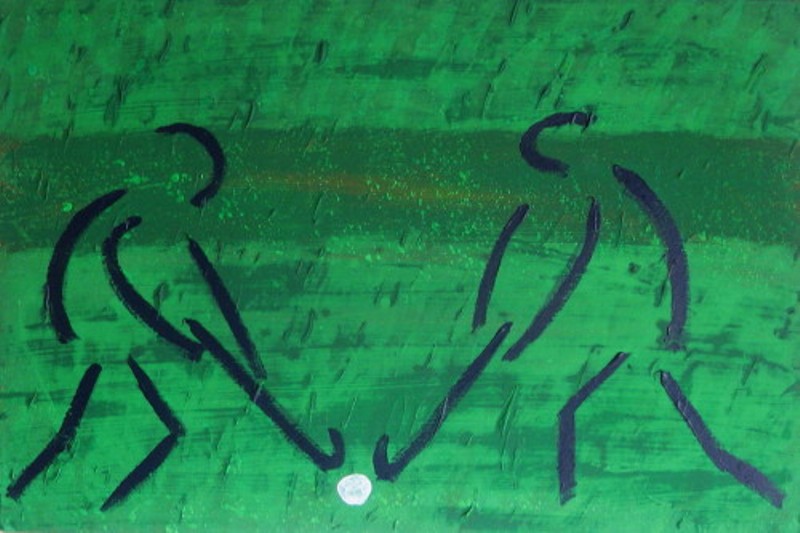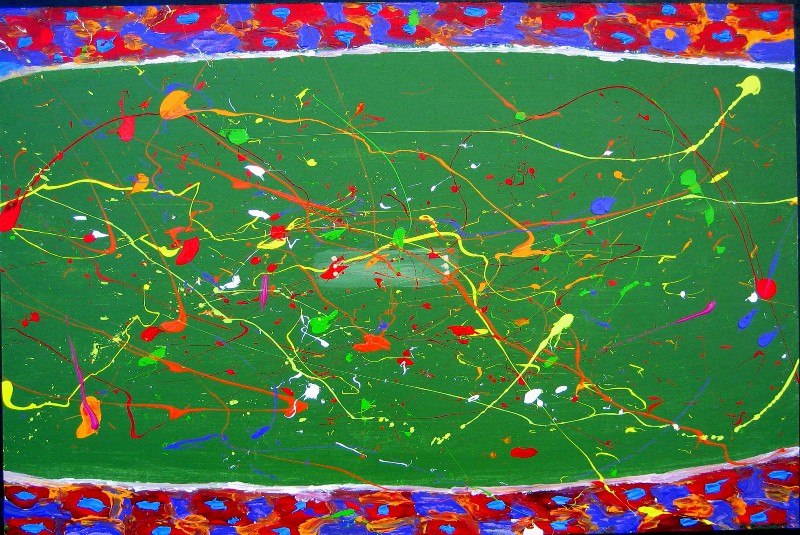
The NRL grand-final ‘final five minutes’ saw a cataclysmic change of decision which resulted in a try being scored from the outcomes of that change of decision. That ‘Try’ in effect, won the game, not just the game, the 2019 premiership.
These are the considerations
In Rugby League each team has six tackles before a hand over of the ball. The onsite umpire noticed something akin to an Eastern Suburbs player had in some way breached the rules – and signalled an extra 6 tackles for Canberra. He raised his arm and swivelled his hand – the signal for an extra 6 tackles.
I was watching the game on television and I saw it. The 82,000 spectators it appears saw the umpire’s signal. Numbers of the Canberra Raiders saw the signal. That much is clear.
But - the side line umpire and other on-field umpire saw something different and indicated to the onsite facing umpire a very different outcome, that the decision should not be an extra 6 tackles, rather a hand over. That much is also clear.
The Canberra Raiders player with the ball in hand, thinking he had 5 more tackles, went to ground only metres from the line. Had he heard something different he would more than likely (like 99.9%) have taken a different course of action, such as kicking the ball. That too is acknowledged.
So far - 3 out of 3.
Now comes the tricky bit. The onsite umpire then reversed his decision. It was reversed from 6 more tackles to a hand over (this all happened within a few seconds).This too is agreed. 4 out of 4.
The Canberra Raiders player (who went to ground) as in usual play, as above, would have taken a different play and not gone to ground. (By going to ground on the 6th tackle resulted in a hand-over under the rules).
This is then what happened.
The Eastern Suburbs took advantage of this confusion and forged ahead and with a series of ball passing, found the try line, and scored the winning points - one end of the ground to the other.
The Chairman of the NRL Peter Beatty next morning on television was unrepentant in that the correct decision was made. The line umpire was correct and conveyed this to the onsite umpire who reversed the decision.

Other considerations
The Canberra Raiders players who were in the mix and saw the onsite umpire’s hand lifted high twirling hand signalling 6 extra tackles, then automatically assumed attacking directions and when the decision was reversed, were simply not in the best defensive positions to prevent, in effect, a run-away off the mark.
What were other considerations -
The onsite umpire could have called for a television replay as the third umpire (as it were) made a different call - so as to have a look from different angles and make a determination after such confusion (if that were permissible).
OR, the onsite umpire could have called a halt to play - saying that what he thought was the decision (6 more tackles) had been incorrect as the side line umpire had a better view. This would have in effect, stopped the game, giving advantage to neither side in the light of his original ‘mistaken’ decision.
These were two alternatives that could have taken place (had such been within the rules). I have no idea whether the umpire can call a halt to play for ‘confusion’ – I am a qualified hockey umpire and it is permissible in hockey. In the years before the modern artificial pitches, they had a ‘bully’ (hockey, 1, 2 and 3) to restart the match.
What happened
Instead of doing either of these very reasonable things - creating a fair and even outcome - in an instant - the decision was reversed. As a direct result, the Eastern Suburbs team took advantage and within moments from one end of play to the other, scored a try to win the premiership.
This in a nutshell was the issue.
Ethics of umpiring
Anyone of us who has umpired a sporting event – netball, hockey, soccer, whatever – finds themselves making decisions within an instant of a second (so it seems) and 99.5% (or there-abouts) of them are right decisions.
This is not referring to umpires who are ‘not’ up to the mark and eventually get sidelined, rather this is about decisions that might change the game’s outcomes and decisions that has the most serious ramifications.
In previous years we have seen the NRL sideline umpires from the grand final match. Never in my memory has an umpire been replaced part way through a fixture due to a situation that changed the nature of the final outcome.
A review happens in a cool calm environment weeks after the event.
What of those in the mix, the fixture, the athletes. The heartbreak is horrific. But it happens all over the world in a myriad of sports. An umpire saying sorry, or I could have done it differently, hardly helps. I have umpired hockey many times, and like umpires all over the world, never erred when a sheep station was up for grabs.
Retired AIS Chaplain of 30 years Rev Peter Nelson and a double Olympic Chaplain (Atlanta and Sydney) sent this: “Umpires serve the game knowing that all decisions may not be correct. They have the interests of the game at heart, and therefore have a broader view of the game than players and fans .They are now under enormous pressure because of television cameras. You have to be a brave man / woman to umpire at this top level.”
But there are ramifications. In the Westminister system an umpire (from any sport) falls on their sword even though the ‘record stands’(end result). We are all human, but when a ‘sheep station’ is up for grabs, a silent unwritten mental note is attached to an umpire (in any sport) ….

.jpg) Dr Mark Tronson is a Baptist minister (retired) who served as the Australian cricket team chaplain for 17 years (2000 ret) and established Life After Cricket in 2001. He was recognised by the Olympic Ministry Medal in 2009 presented by Carl Lewis Olympian of the Century. He mentors young writers and has written 24 books, and enjoys writing. He is married to Delma, with four adult children and grand-children. Dr Tronson writes a daily article for Christian Today Australia (since 2008) and in November 2016 established Christian Today New Zealand. Dr Mark Tronson’s Press Service International in 2019 was awarded the Australasian Religious Press Association’s premier award, The Gutenberg.
Dr Mark Tronson is a Baptist minister (retired) who served as the Australian cricket team chaplain for 17 years (2000 ret) and established Life After Cricket in 2001. He was recognised by the Olympic Ministry Medal in 2009 presented by Carl Lewis Olympian of the Century. He mentors young writers and has written 24 books, and enjoys writing. He is married to Delma, with four adult children and grand-children. Dr Tronson writes a daily article for Christian Today Australia (since 2008) and in November 2016 established Christian Today New Zealand. Dr Mark Tronson’s Press Service International in 2019 was awarded the Australasian Religious Press Association’s premier award, The Gutenberg.
Mark Tronson's archive of articles can be viewed at http://www.pressserviceinternational.org/mark-tronson.html

Dr Mark Tronson - a 4 min video
Chairman – Well-Being Australia
Baptist Minister 45 years
- 1984 - Australian cricket team chaplain 17 years (Ret)
- 2001 - Life After Cricket (18 years Ret)
- 2009 - Olympic Ministry Medal – presented by Carl Lewis
- 2019 - The Gutenberg - (ARPA Christian Media premier award)
Gutenberg video - 2min 14sec
Married to Delma for 45 years with 4 children and 6 grand children